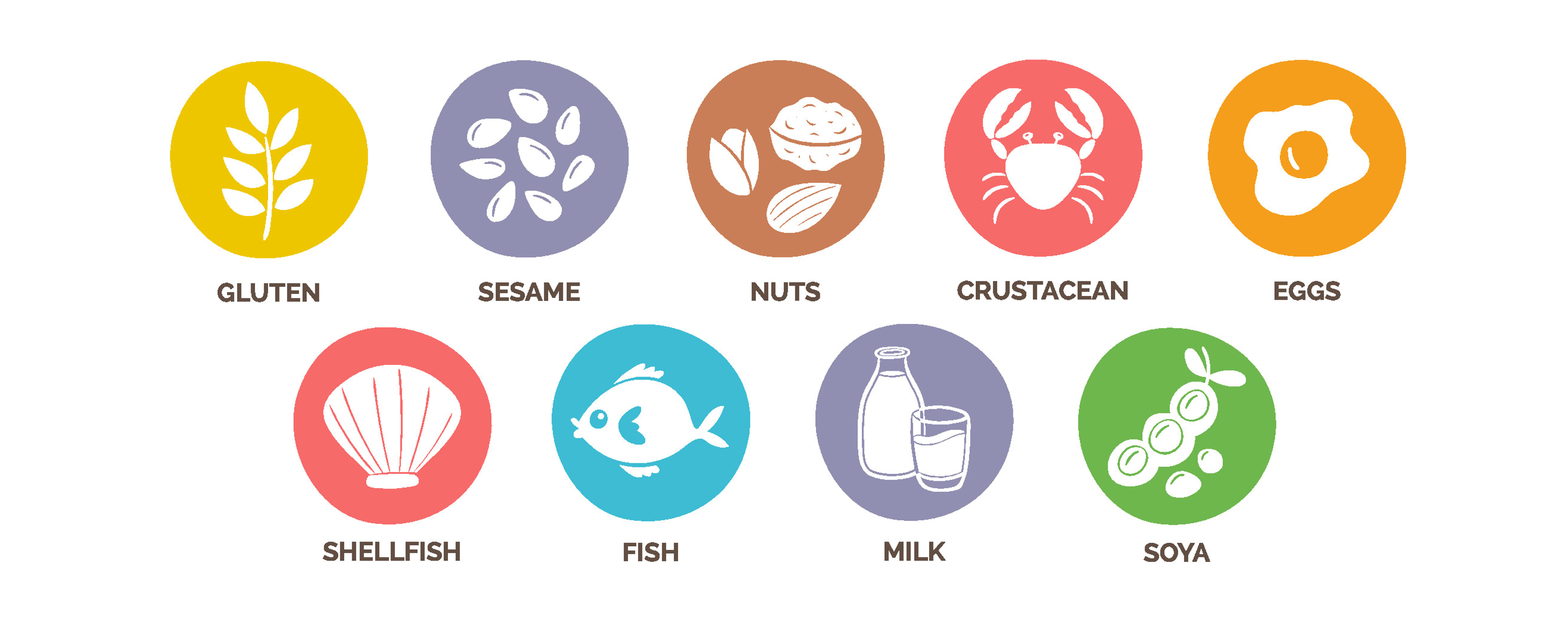Undeclared Allergens: #1 Cause of Recalls
In the US alone, 32 million people are affected by food allergies; that's 1 in 10 adults and 1 in 13 children or 2 students in every classroom. Each year in the US, 200,000 people require emergency medical care for allergic reactions to food (Fact and Statistics - Food Allergy Research & Education). Allergens have become a leading cause of food safety issues in the past decade.
Few notable recalls from February 2022
-
Wishbone recalls dressings due to indeclared allergen on label (egg).
Wish-Bone salad dressings recalled over undeclared allergen (fox5ny.com) -
Yogurt Raisins recalled due to undeclared allergens.
Some Yogurt Raisins recalled nationwide due to undeclared allergen (wkbn.com) -
Morgan Food recalls Skyline products due to misbranding and undeclared allergens (milk, soy, wheat).
FSIS Recall Release 005-2022 - Misbranding and Undeclared Allergen (yahoo.com)
What is a food allergy and allergic reaction?
Food allergies are a medical condition in which exposure to a certain food triggers an immune response, called an allergic reaction. Proteins that trigger this reaction are called allergens. Symptoms can be mild to severe (anaphylaxis) and may even result in death. Hence this is an important issue that must be addressed by the food industry.
Additionally, undeclared allergens can result in recalls, tarnish brands and lead to equity loss in products regulated by FDA and USDA. Hence companies must implement an effective Allergen control program for all the regulated allergens. In the US there are 9 allergens per the Food Allergen Labeling and Consumer Protection Act (FALCPA): Milk, Eggs, Peanuts, Tree nuts (species specific), Fish (species specific), Crustacean shellfish (Species specific), Wheat, Soybeans and Sesame (added to priority allergen labelling list 4/23/2021)

Further, the congress has set a compliance date of January 1st, 2023 to allow companies to update allergen control programs and labeling requirements accordingly. Even though FALCA only applies to FDA regulated products, the FSIS encourages use of allergen statements consistent with FALCPA.
What can food manufacturers do to reduce the risk of allergic reactions?
-
Review product list and understand regulations in countries where they are sold. Attached is the latest edition of the International Regulatory Chart on Food Allergens.
International-Allergens-2-3-22 (unl.edu) -
Address Food Allergen Preventive Controls for Human Food to prevent allergen cross contamination
- Preventive Control for Human Food requires verification of allergen cleaning to ensure effective cleaning programs are in place
- Allergen verifications include but not limited to visual inspection, allergen trest kits, and proper training of all employees
-
Ensure that food product must be packaged with accurate labels. Majority of recalls due to undeclared allergens is due to packaging the product with the wrong label
- Maintaining a checklist can help prevent these types of recalls such as verifying the recipe with labels, disposing obsolete labels and having a good change over program to avoid mixing labels
-
Establish good supplier approval programs to address allergens present in ingredients
-
Adhere to Good Manufacturing Practices (GMP) and cleaning procedures during shipping products
-
Train personnel to adhere to good GMP
-
Create dedicated storage area for product containing allergens
-
Pay specific attention to the use of utensils and rework products
-
Look at scheduling products without allergens first and then producing products with allergens when possible (if not full, CIP or COP is needed)
Learn how you can prevent recalls due to misbranding and undeclared allergens digitally with our solutions offered through our environmental monitoring tool. Contact us for a demo.





